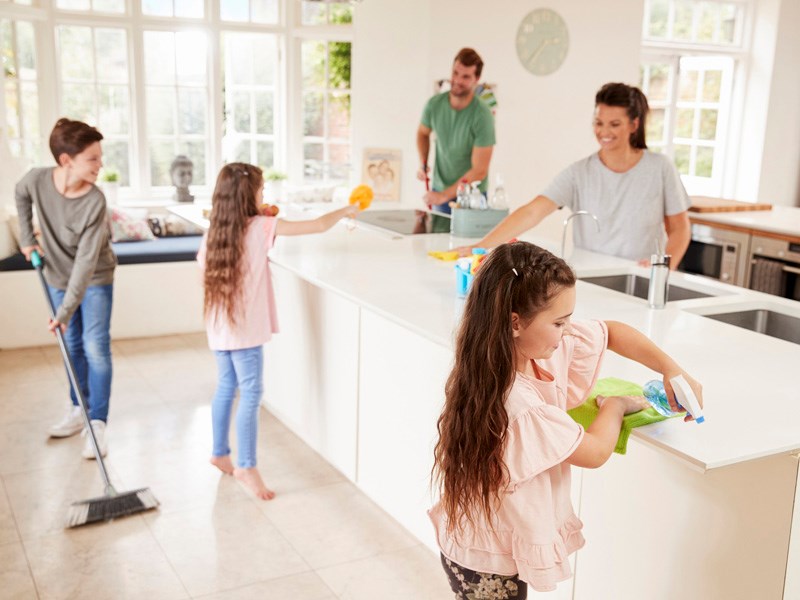Maintaining a home takes time, energy and know-how. Older homes in particular are harder to maintain and can be time consuming and costly. With a little bit of work and the tips below, your home will be safe, comfortable and functional. It is a well-known fact that a well-maintained and organized home will help increase your enjoyment and ultimately the value of your home.
1. Take a walk through your home
The easiest way to improve and protect your home against clutter, dirt, dust, allergies, chemical poisoning and other harmful elements is to walk through every room, including the shed, garage and basement. On this archaeological tour, you will find what needs to be fixed, cleaned, removed, organized or recycled.
2. Clean and disinfect your kitchen
Your kitchen is possibly the busiest room in your home. If neglected it could potentially be a dangerous space for you and your family. Remove harmful cleaners under your sink, childproof if you have to. Mount a fire extinguisher in a visible and accessible place. Teach your family members how to use one. Throw away dated food, remember canned food can expire.
3. How safe is your bathroom?
Because of the moisture collection in your bathroom, it could become a likely mould-growing space. Mould is a major cause of allergies and asthma. Proper ventilation is a must. Opening windows to bring in fresh air helps, as well as drying your shower walls after every use.
4. Organize and renew your medication
Discard outdated prescriptions as well as those over-the-counter medications. Contact your pharmacist about safe disposal. Keep the medication in your linen closet away from heat and moisture. Use a high shelf to store your medications away from children and pets.
5. Check and change
Once a year check and change the batteries in your smoke detectors, as well as your carbon monoxide detector. Because carbon monoxide is odourless, tasteless and colourless, it is highly dangerous. Some signs that you might have carbon monoxide poisoning are headache, fatigue, nausea and vomiting.
6. Are you allergic to your home?
There are many ways we pick up allergies. Dust the furniture in your home at least every two weeks. Vacuum your carpet once a week with a filter to reduce the growth of dust mites. Vacuum your mattress once every three months and replace your pillows every two years.
7. Replace your Venetian blinds
Venetian and mini blinds are a magnet for dust and grease. They are very hard to clean and bend easily. Replace them with roll-up washable cotton or synthetic window coverings.
8. Use house plants
Buy some house plants such as Boston fern, English ivy and peace lily to decorate and reduce the toxins in your home. These plants are very absorbent and easy to take care of.
9. What’s under your sink?
Remove cleaners, grocery bags, dog food or anything else that you store under your sink. Check the pipes for leaks and tighten the screws if they are loose. It is better to prevent leaks than having to deal with the damage and cost an unnoticed leak can cause.
10. Use natural cleaners
Use vinegar, baking soda, salt and lemon to clean your home. Avoid cleaning products with strong disinfectant compounds as they contribute to allergies and asthma.
Ranka Burzan owns a professional organizing company based in Powell River and has written several books on reducing clutter and becoming more organized. For information, go to solutionsorganizing.com.



